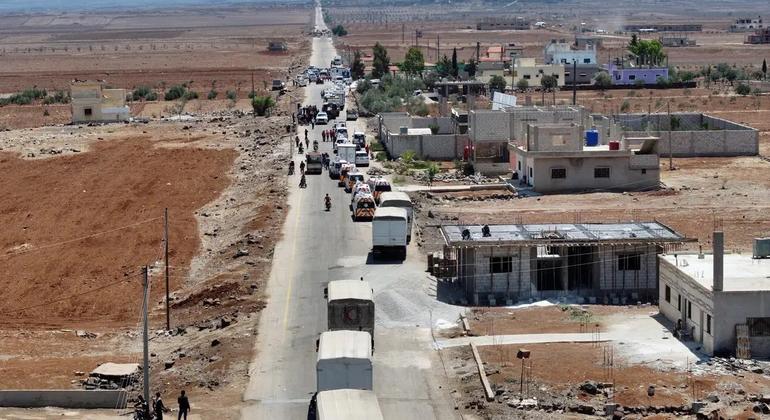Here’s the translation to American English:
The situation in Suweida, Syria, has drastically deteriorated in recent weeks, forcing more than 145,000 people to flee their homes. Many of these families have escaped with only the bare essentials, seeking refuge in makeshift centers in the Dara’a region, the rural outskirts of Damascus, and the capital itself. Christina Bethke, the interim representative of the World Health Organization (WHO) in Syria, has reported that mobile medical teams supported by WHO are providing urgent care to the displaced, including maternal and child health services, psychological support, and essential medication. However, the crisis in Suweida has become critical.
The local healthcare system is facing a severe shortage of staff, further complicating medical care. The arrival of many healthcare professionals has been hampered by insecurity, while interruptions in the supply of electricity and drinking water exacerbate the situation. Additionally, essential medications are at critical levels, pushing the city’s main hospital to the brink of collapse, reaching moments of extreme overcrowding.
In a context of increasing violence, WHO has reported five direct attacks on medical facilities, including the killing of two doctors and the blocking of ambulances. Bethke emphasized the need to protect healthcare workers and facilities, reminding that “medical care can never be a target,” a principle that should be respected by all parties under international law.
Humanitarian access in the region remains severely restricted. Only two aid convoys managed to enter the conflict zone on July 20 and July 23, coordinated by the Syrian Ministry of Health and the Red Crescent. Since the outbreak of fighting on July 13 between Bedouin groups and Druze minorities, tensions have escalated, leading to the intervention of government troops.
The complexity of the situation is heightened by the fragmentation of territorial control among various groups, making humanitarian operations more difficult. Nonetheless, Damascus has expressed its willingness to facilitate the delivery of humanitarian aid “with full security.”
For its part, the United Nations Children’s Fund (UNICEF) has expressed concern about the rising risk of epidemics, especially with the high temperatures and precarious living conditions in the area. In response to this crisis, UNICEF is ramping up its efforts by distributing bottled water, water tankers, hygiene kits, and emergency sanitation services to reduce the risk of waterborne diseases.
via: MiMub in Spanish











